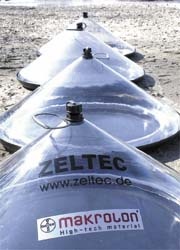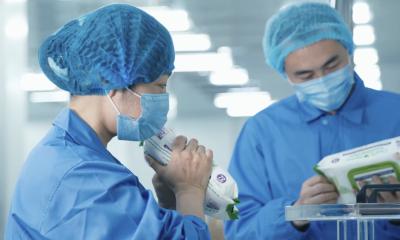Watercone - the winner
Stephan Augustin (36), a Munich-based industrial designer, has scooped the international iF Design Award for his 'Watercone'.

Up to 1.5 litres of fresh water can be produced per day, by placing this device on moist ground. Heat from the sun evaporates the moisture, which condenses in the Watercone, forming droplets that trickle down the inside wall of the device into a collecting trough - ready for use.
Stephan Augustin chose to make the Watercone from an easily moulded plastic, Makrolon, made by Bayer Polymers. The firm says the plastic is as transparent as glass, almost unbreakable, lightweight and impact-resistant, even at extremely high temperatures, making it highly suitable for water containment in harsh climates.
‘Watercones are fully mobile and particularly suitable for flood regions, because they can float on calm water and produce drinking water. Aid in the Third World only functions if it’s simple and effective.’ says the freelance designer, whose winning concept goes into production this summer.
Details: www.augustin.biz
30.04.2003





